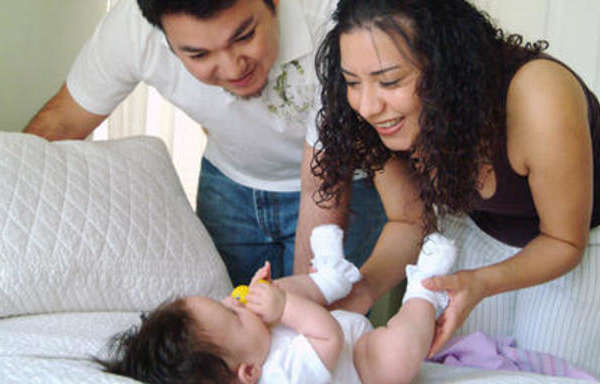
Understanding The Adoption Process In India
16 Mar 2022 | 4 min Read
Baby Chakra
Author | 501 Articles
Who can adopt a child in India?
In India the rule generally favours couples or single women for adoption. However in the recent past we have seen a few exceptions where a single male has been allowed to adopt a child, but even in such cases the male adoptive parent can only apply to adopt a male child, whereas single female adoptive parents can apply for both genders.
Non-resident Indians (NRIs) are also allowed to adopt a child from their home country if they wish to do so. What the central authorities require is that the adoptive parents are financially, mentally, emotionally and physically capable of looking after the adoptive child.
What are some of the legal requirements while applying to adopt?
As per the laws in India the age difference between the adoptive parents and the child they adopt should be at least 21 years or more. Furthermore, in case of couples the combined age cannot exceed 90 (which means both spouses should not be older than 45 years) while adopting an infant.
If the child is older then the age of the adoptive parent can be up to 55 years. While each adoption agency will also have their own set of rules, the age stipulation is almost the same across agencies. As per the rules set by the Central Adoption Resource Authority (CARA) both adoptive parents also need to have a valid PAN card which will be required at the time of registration while seeking to adopt a child.
How do I start the adoption process?
Prospective adoptive parents can choose to either apply their application online directly at the government body website www.cara.nic.in. The parents can also choose to contact an adoption agency in their city to guide them through the application process.
Once the registration documents have been carefully filled as per the advice provided by the government website or by the adoption agency that you have chosen to work with, your application will be submitted with the authorities for evaluation. State recognised adoption agencies will be contacted once your application meets the criteria set by the government.
The specialised adoption agencies will then conduct a home study to assess and verify all the information you have provided in the document and also speak with the adoptive parents as a next step in the evaluation process.
Once the home study review has been approved, the state approved agencies will invite the couple over to their agency when they find a child that matches the couple’s or the individual applicants profile. The wait between the application and the final adoption can take up to 2 -3 years.
What are the legal documents required in order to apply for adoption?
Here is a list of legal documents that are required while applying for the adoption of a child:
1. Self-Assessment form – this form is filled separately by the adoptive parents involved
2. Income Certificate of the adoptive parents (in case of a couple, both need to submit if applicable)
3. Investment Certificates: Copies of all the investment documents will be required for submission Health Report: Stating health records and major ailments that both adoptive parents might have and also a report of general health status attested and approved by a practicing doctor.
4. Statement on Adoption (original): This is a document that will be written jointly by the couple in case there is more than one adoptive parent.
5. Reference letters (original): This can be sourced from friends and family who have been associated with the individual (in case of a single parent adoption) or the couple for more than 5 years.
6. Marriage Certificate
7. Proof of date of birth: Copy of birth certificate, school leaving certificate and passports can be used here
8. Undertaking letter: A family relative (preferably a younger sibling) needs to sign an undertaking letter on a legal stamp paper validating that the couple has provided all the correct information in the document. The letter also requires that the undertaking individual will take responsibility for the adopted child in case of any unforeseen accident with the adoptive parents.
9. Police Clearance Certificate: This often takes more time than it should. Your agency should be able to guide you with the documents required.
10. Child Care Plans: This can turn out to be the most critical document for a would-be-working mother. It requires a daycare or a nanny to provide a written undertaking on stamp paper stating that the child will be duly taken care of in absence of the mother. This is separate from a similar undertaking that the would-be mother has to provide in the interest of the welfare of the child.
11. Photographs: as required by CARA
12. Registration Fees: Check CARA website for details.
A


Suggestions offered by doctors on BabyChakra are of advisory nature i.e., for educational and informational purposes only. Content posted on, created for, or compiled by BabyChakra is not intended or designed to replace your doctor's independent judgment about any symptom, condition, or the appropriateness or risks of a procedure or treatment for a given person.
